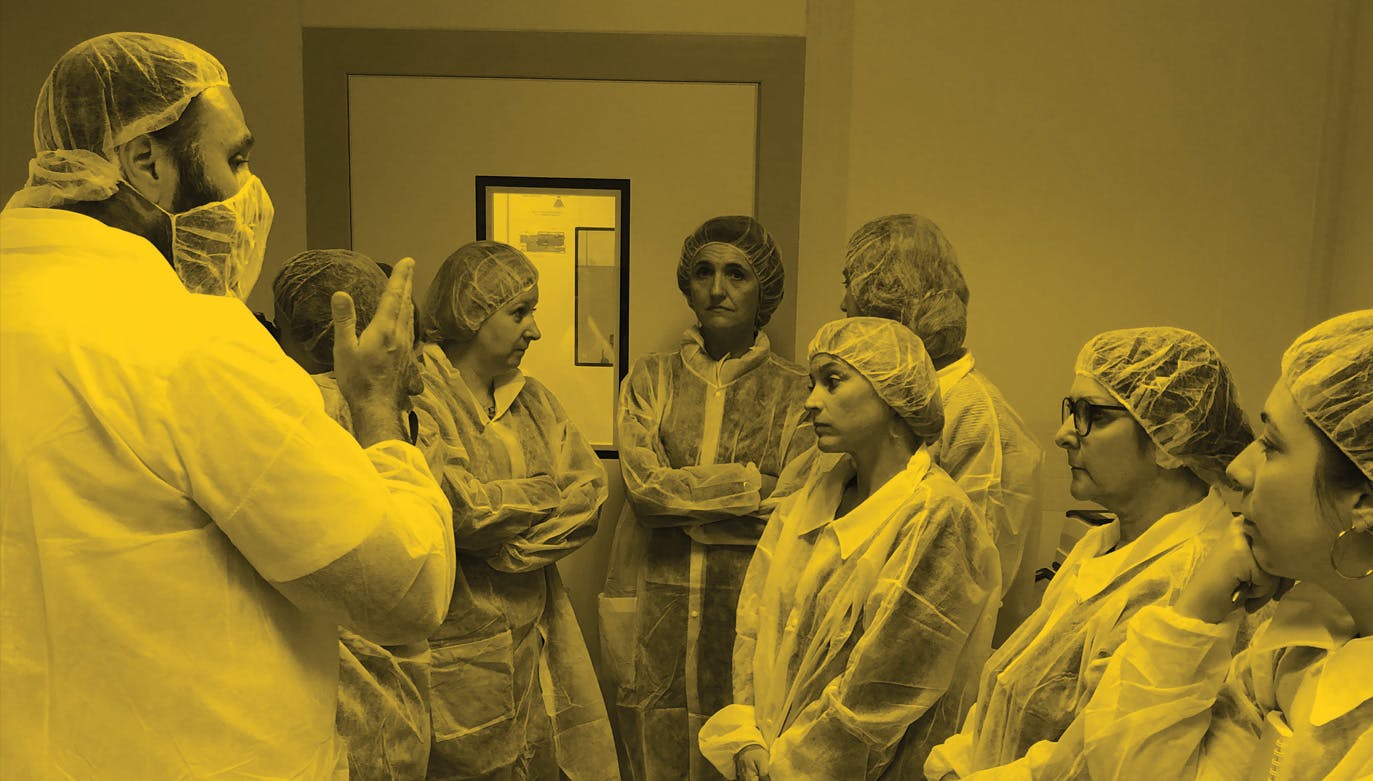MedTech Week Magazine 2019 At a glance
Highlights from the 5th Edition of the Award-Winning MedTech Week Magazine
2,5
million
views
I am particularly pleased to see so many examples of companies reaching out to their communities and engaging with employees – after all, medtech is really about people rather than technology.

22
Countries
Engaged
51
Members
Involved
55
External
Partners
3,300
new fans & followers
37,000
website visits
140,000
video views
Bringing Sound & Vision to the message
Articles

Guessing games
Fun video series saw kids trying to figure out what medical devices do

Delivering value that’s valued
A series of blogs, videos and case studies offered a global view of value in healthcare

Paying for digital health
Digital technologies could transform patient care – but how are they reimbursed?

Patient Safety First
National associations help companies deliver products of the highest quality

Safer sleep
Remote monitoring technology is revolutionising sleep apnoea treatment

Demystifying nuclear medicine
Press trip offers journalists insights on the latest in PET/MRI technology

A job for life
Careers in medtech offer a rewarding way to help transform and save lives every day

Fighting antimicrobial resistance (AMR)
Diagnostic tests are the invisible heroes of the healthcare system. Between 60 and 70% of all medical decisions are based on the results of diagnostic tests, but medical biology represents only 2-3% of healthcare expenditures.

Career choices
Apprenticeship Night was a chance for companies to engage with young people

When plastic heals
Translating material properties into life-saving products
Perspectives

New role for Clinical Research Organisations
Two new EU Regulations will require the collection and analysis of more data during clinical investigations

Green is the new black
Climate action is rightfully gaining space on the policy agenda. Healthcare is part of the problem and must become part of the solution.

Improving the lives of people living with diabetes
It is incredible when I think that nearly 100 years have passed since the discovery of insulin. Since then, insulin has saved the lives of millions of people living with diabetes around the world.

What do patients want?
Patients don’t care about technology – they care about the quality of life

Career inspiration: My journey to biomedical engineering
At the age of seventeen, I was good at maths and sciences, but I did not know what to study after secondary school.

Are you ready for Eudamed?
One of the biggest changes on the healthcare horizon will be new EU requirements for product information. If you are not already preparing for this, start now – the clock is ticking.

Changing health, changing lives
Our sector has changed a great deal in the last decade, but there is much more innovation to come – notably in customisation and data.

Incontinence: Breaking the taboo
The condition can be treated, often cured, and always managed

‘Will it make the boat go faster?’
We need to work in partnership with healthcare providers to understand the true value of technologies.

The future of medicine is personal
We must all play our part in embedding personalised medicine into Europe’s healthcare systems

‘Will it make the boat go faster?’
We need to work in partnership with healthcare providers to understand the true value of technologies.
Stephen O’Callaghan
Senior Director, Johnson & Johnson Managed Services
We believe that there should be a holistic approach in co-creating solutions with healthcare provider partners. By looking at the whole system through a value-based lens, we can deliver on what really matters: improved patient experience and outcomes in a sustainable way.
Every new technology that’s introduced must improve the patient experience. I like to take a lesson from one of the winning British Olympic rowing teams; their approach to training meant that every time they made a change, they asked themselves the only question that mattered, ‘Will it make the boat go faster?’ Let’s also adopt this mindset.
Medical technology has the potential to deliver marginal and major gains for patients. A lot of the time we focus on the big advances, but often ensuring the basics are right and delivering incremental gains can, in fact, make the biggest difference to patients.
This includes making sure the patient pathway through the hospital is the best it can be. Inefficiencies in the system are bad for a patient’s experience and can impact staff, undermining patient outcomes.
Value-based healthcare is all about healthcare providers’ core priorities. The hospitals that truly take a value-based approach to the care they deliver will significantly reduce cost, become more efficient, more productive and will ultimately improve patient experience.






